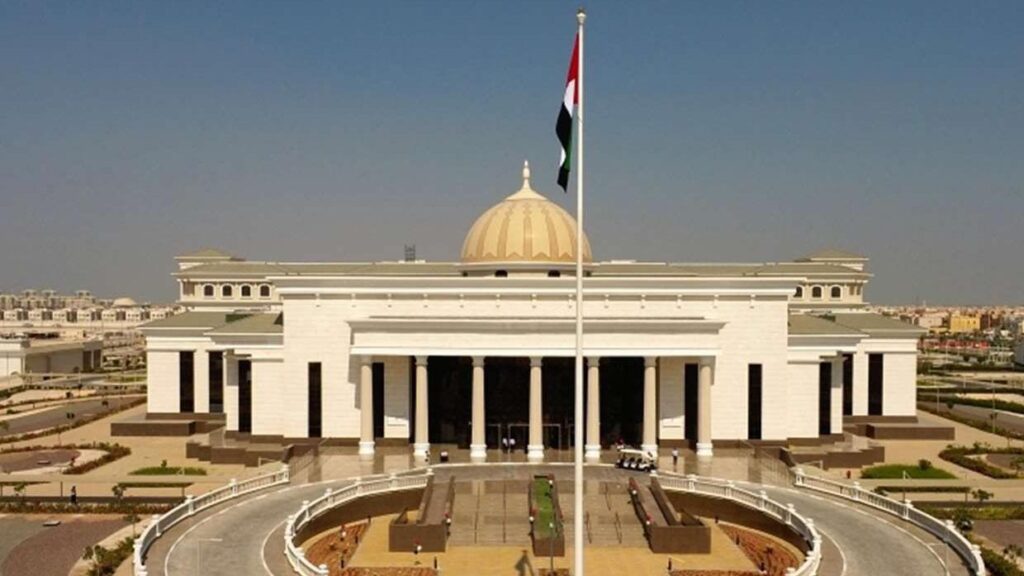The Supreme Court of the UAE is set to deliver a crucial ruling on the much-discussed ‘Justice and Dignity’ case appeals. The decision, expected in the coming days, could have a major impact on the country’s legal system and human rights framework. This case has drawn national and international attention, with many closely watching how the highest court in the country will rule. The ruling could set a legal precedent that might influence future court cases, making this a historic moment for the judiciary in the UAE.
Background of the Case
The ‘Justice and Dignity’ case involves multiple appeals from individuals who claim their legal rights were violated in previous court rulings. These individuals argue that they were denied fair trials, and some say their personal dignity and freedoms were not respected during legal proceedings. While the exact details of each appeal remain confidential, the broader case raises important questions about justice, fairness, and human rights in the UAE.
In recent years, concerns over legal protections and human rights have become a global discussion point. Many believe that justice systems should uphold fairness, transparency, and equal treatment for all individuals, regardless of their background or social status. This case has therefore gained significant media coverage, with legal scholars analyzing what the decision could mean for future cases. The Supreme Court’s ruling will not only affect those directly involved but could also shape how the UAE’s courts interpret laws related to due process and fundamental rights.


Legal experts believe this case could set a precedent for future judicial decisions, influencing how courts handle cases related to individual rights, due process, and fair trials. If the Supreme Court rules in favor of the appellants, it could lead to reforms in legal procedures and offer new protections for defendants. On the other hand, if the court upholds previous decisions, it may reinforce the status quo, maintaining existing legal interpretations. Either way, the ruling will serve as a reference point for future cases involving similar legal disputes.
Why This Ruling Matters
The case is seen as a defining moment for the UAE’s legal system. Human rights organizations have called for a fair and transparent ruling, stating that the outcome will reflect the country’s commitment to justice and dignity. The ruling could also influence international perceptions of the UAE’s judicial processes. A positive ruling in favor of justice and dignity could help strengthen trust in the legal system, reassuring citizens and foreign investors that the UAE is committed to upholding fair legal standards.
The Supreme Court’s decision may also have a social impact. If the ruling supports the appellants, it could empower more individuals to challenge legal decisions they believe are unfair. This would signal a move toward greater accountability within the judicial system. It would also set an example for legal professionals, encouraging them to pursue cases of injustice more boldly. If the ruling goes the other way, it may reinforce the importance of following established legal procedures while discouraging further appeals of similar nature.
The case also brings attention to the balance between national laws and global human rights standards. As the UAE continues to play a crucial role on the world stage, its judicial decisions are scrutinized by international organizations, legal experts, and policymakers. A ruling perceived as fair and just could enhance the country’s reputation, while a controversial verdict might raise further discussions on legal practices.
Reactions and Expectations
Legal professionals, human rights advocates, and citizens are all waiting anxiously for the ruling. Many believe the case will clarify how the UAE balances national laws with international legal standards. Lawyers representing the appellants have expressed hope that the Supreme Court will recognize the concerns raised and make a ruling that upholds justice for all.
Meanwhile, government officials and legal experts have reassured the public that the UAE’s judiciary remains independent and fair. They emphasize that the Supreme Court’s ruling will be based purely on legal principles and not external pressures. Legal analysts suggest that whatever the outcome, the ruling will spark legal discussions that may lead to potential reforms or clarifications in existing laws.
International organizations are also closely monitoring the case. Some have called for greater transparency in legal proceedings, ensuring that the legal system remains open to scrutiny. This case may set the stage for further discussions on legal modernization and improvements in court procedures in the UAE.
What Comes Next?
After the ruling, legal analysts expect discussions on whether the decision should lead to changes in the UAE’s legal framework. If the appellants succeed, lawmakers may consider introducing clearer guidelines to prevent similar issues in the future. Legal reforms may be proposed to ensure greater fairness in trials, improved legal representation, and better protection of fundamental rights. If the appeal is denied, it could prompt further debate on the fairness and transparency of the legal process.
Some experts suggest that this case could influence future legal education and training programs in the UAE, ensuring that judges and legal professionals are well-versed in human rights principles and fair trial standards. This could help in preventing similar legal disputes from arising in the future, strengthening the overall integrity of the legal system.
Regardless of the outcome, the case has already sparked important conversations about justice and dignity in the UAE. As the nation continues to grow and evolve, legal reforms and judicial decisions like this one will play a key role in shaping its future. The judiciary serves as the backbone of a nation’s commitment to fairness, and this case could reaffirm the importance of ensuring equal justice for all individuals.
The Supreme Court’s ruling is expected soon, and its implications will be felt across the legal and social landscape of the UAE. Until then, all eyes remain on the country’s highest court, waiting to see how justice will be served. Whether the ruling leads to immediate changes or longer-term discussions, it will remain a landmark decision in the UAE’s legal history.
Also read: UAE’s Education System Gets a Makeover to Prepare Students for Future Jobs













